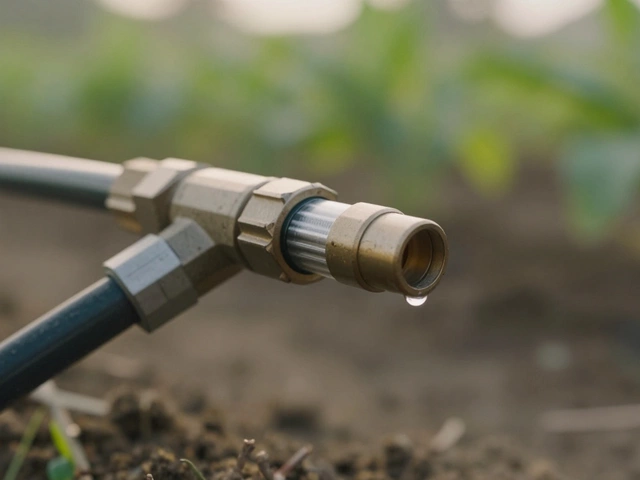Apple Cider Vinegar: Simple Hacks for a Healthier Garden
If you have a bottle of apple cider vinegar (ACV) lying around, you already own a cheap garden helper. ACV can act as a weed killer, a fungal fighter, and a nutrient boost for many plants. The best part? You don’t need fancy equipment or chemicals—just water, a spray bottle, and a little know‑how.
How to Use ACV as a Natural Weed Killer
Mix one part ACV with one part water and pour it directly onto unwanted weeds. The acidity burns the leaf tissue, and the weed will wilt in a day or two. For tougher weeds, add a teaspoon of salt and a few drops of dish soap to the mix; the soap helps the solution cling to the leaves.
Only spray on plants you want to kill—ACV can harm your vegetables and flowers too. Apply on a sunny day for faster results, but avoid rain forecasts.
DIY ACV Sprays for Plant Health
To keep fungal problems like powdery mildew at bay, combine 2 tablespoons of ACV with 1 liter of water. Spray the mixture on the affected leaves every 7‑10 days. The mild acidity stops the fungus from spreading without harming the plant.
For a quick nutrient boost, dissolve 1 tablespoon of ACV in a gallon of water and use it as a foliar feed. The vinegar adds potassium and helps the plant absorb other nutrients better.
When you’re feeding soil, mix 1 cup of ACV into a 5‑liter bucket of water and pour it around the base of your fruit trees or vegetable beds. It improves soil pH slightly and encourages beneficial microbes.
Remember, ACV is acidic, so don’t overdo it. A few applications a month are enough for most garden tasks.
If you’re worried about the taste of your harvest, rinse the produce with clean water before eating. The vinegar residue is harmless but may affect flavor if left on.
Another handy trick is using ACV to clean garden tools. Soak tools in a 1:1 ACV‑water solution for 15 minutes, then wipe them dry. The acidity removes rust and kills lingering microbes.
Many Indian gardeners love ACV because it’s affordable and easy to find at local stores. You can even make your own by fermenting apple juice at home, saving more money.
When you store ACV, keep it in a cool, dark place. The liquid stays stable for years, so you’ll always have a backup garden aid.
For those with sensitive soil, test the pH after a few applications. Use a simple pH test kit—if the soil becomes too acidic, balance it with a pinch of garden lime.
In summary, apple cider vinegar is a versatile, low‑cost tool for Indian gardeners. Use it to kill weeds, fight fungi, boost nutrients, and clean tools. Just follow the mixing ratios, avoid over‑application, and you’ll see a healthier garden without any harsh chemicals.
Does Apple Cider Vinegar Work as a Natural Insecticide? Facts, Recipes & Results
Curious about using apple cider vinegar as a natural insecticide? Get the real facts, tips, and science behind using ACV for pest control in this easy-to-read, fully detailed guide.
About
Gardening
Latest Posts


Year-Round Flowering Plants in India: A Gardener's Guide
By Alden Thorne Dec 30, 2024

Best Low Maintenance Outdoor Potted Plants for Effortless Garden Beauty
By Alden Thorne Jun 28, 2025

What Is the Difference Between Emitter and Dripper in Drip Irrigation?
By Alden Thorne Jan 13, 2026

